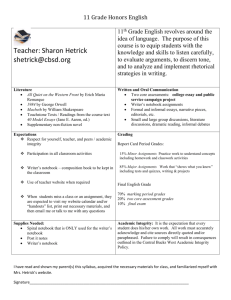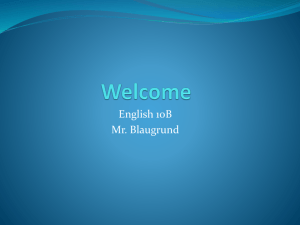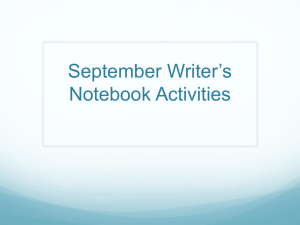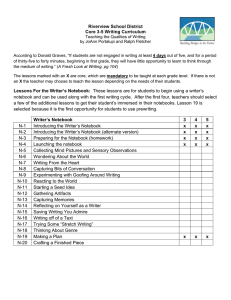21W.735:01, Writing and Reading the Essay Fall 2005 Rebecca Faery
advertisement
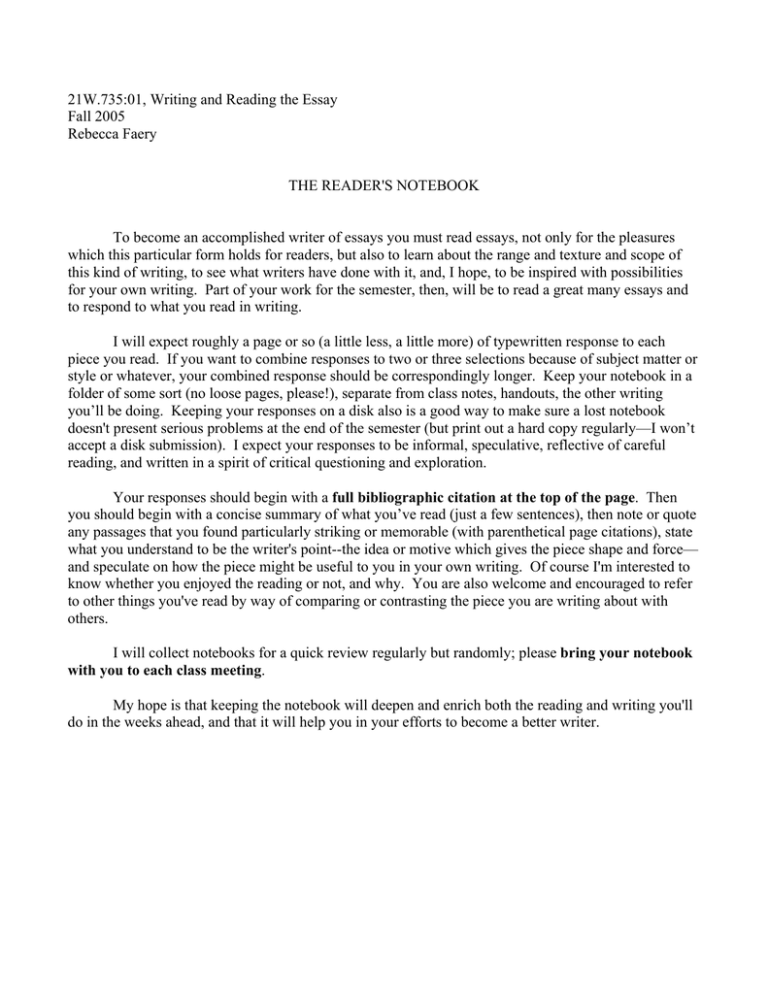
21W.735:01, Writing and Reading the Essay Fall 2005 Rebecca Faery THE READER'S NOTEBOOK To become an accomplished writer of essays you must read essays, not only for the pleasures which this particular form holds for readers, but also to learn about the range and texture and scope of this kind of writing, to see what writers have done with it, and, I hope, to be inspired with possibilities for your own writing. Part of your work for the semester, then, will be to read a great many essays and to respond to what you read in writing. I will expect roughly a page or so (a little less, a little more) of typewritten response to each piece you read. If you want to combine responses to two or three selections because of subject matter or style or whatever, your combined response should be correspondingly longer. Keep your notebook in a folder of some sort (no loose pages, please!), separate from class notes, handouts, the other writing you’ll be doing. Keeping your responses on a disk also is a good way to make sure a lost notebook doesn't present serious problems at the end of the semester (but print out a hard copy regularly—I won’t accept a disk submission). I expect your responses to be informal, speculative, reflective of careful reading, and written in a spirit of critical questioning and exploration. Your responses should begin with a full bibliographic citation at the top of the page. Then you should begin with a concise summary of what you’ve read (just a few sentences), then note or quote any passages that you found particularly striking or memorable (with parenthetical page citations), state what you understand to be the writer's point--the idea or motive which gives the piece shape and force— and speculate on how the piece might be useful to you in your own writing. Of course I'm interested to know whether you enjoyed the reading or not, and why. You are also welcome and encouraged to refer to other things you've read by way of comparing or contrasting the piece you are writing about with others. I will collect notebooks for a quick review regularly but randomly; please bring your notebook with you to each class meeting. My hope is that keeping the notebook will deepen and enrich both the reading and writing you'll do in the weeks ahead, and that it will help you in your efforts to become a better writer.

